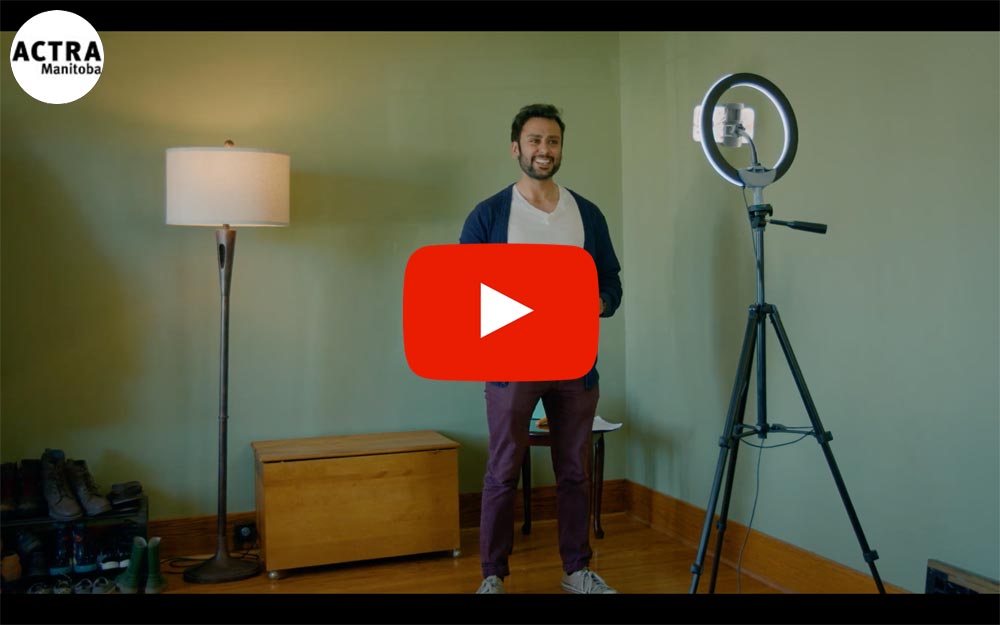
Lights! Tablet? Action!
Auditioning during COVID
Olunike Adeliyi
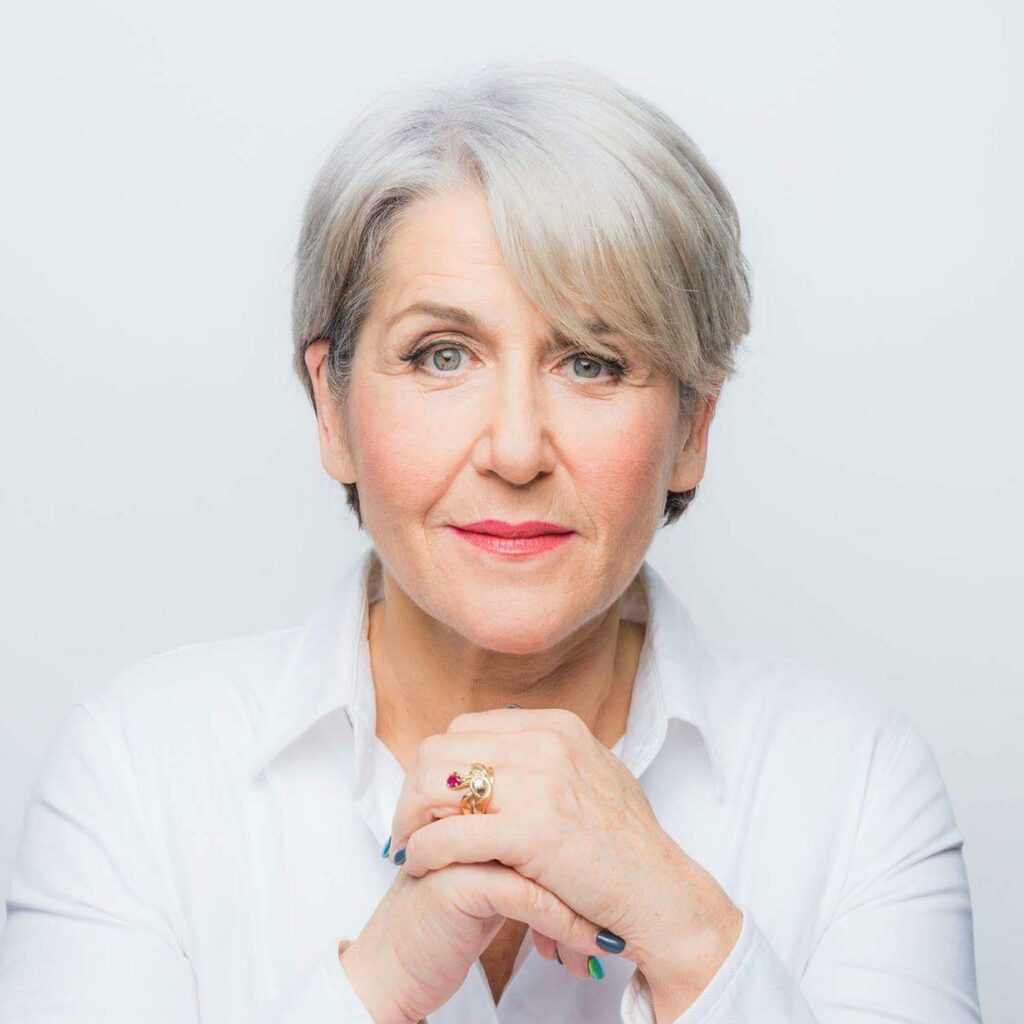
Theresa Tova
Gone are the days (and thrill) of auditioning in person. We’ve all had to accept self-tapes and virtual audition rooms are the new game in town. To help us adjust to this new (and we hope, temporary) pandemic normal, we have asked four actors, who have all booked projects, to share what they’ve learned about the challenges and blessings of auditioning during COVID.

I hope we don’t lose to self-tapes. There is a magic that happens in the live room that is instinctual, present and beautiful.
– Olunike Adeliyi
Olunike Adeliyi
Auditioning with a six-year-old is probably the hardest thing I have ever encountered. I have no time for self-care or to get my work done. We try to make it a family thing, but it is hard with school and everything else you’ve got to deal with to make time for self-tapes. I request extra time to audition all the time. I need the maximum amount of time to do what I do. I comb through every word because I want to do the character justice. I’m that person.
It doesn’t scare me to be in rooms or on Zooms. Of course, you get those little nerves, but if you’re practiced and ready to go, the nerves just become something that supports you. I also try to remember there are no rules. Unless you’re told not to, do what you want. Chances are, when you do what you want, you are way more grounded.
I love the work, but I’m not interested in this crazy cattle call race anymore. We are actors and actors need agency. You’ve got to have the ability to say no. I can walk away at any time and be satisfied I gave it a shot. Because there are other aspirations I want in my life, I am not living for the industry and I can tell you, for me, it took away the stress of having to book. I practice prayer meditation, journaling and reading. I allow myself to drop into a mood of calm. Whether learning lines or doing character development, I’m calming the soul and getting aligned.
Going into a Zoom callback, I use my calm app. I burn my sage and just sit, breathe and wait. That way I am calm enough to say, “I’ve got this to give you. This is me today.” You end up owning your space because they’re not looking for how perfect you say the words, they’re looking for you. I also connect with the reader. I thank them for being opposite me and for giving this moment to me. The only person who matters is the person you’re acting with. No one else in the room matters.
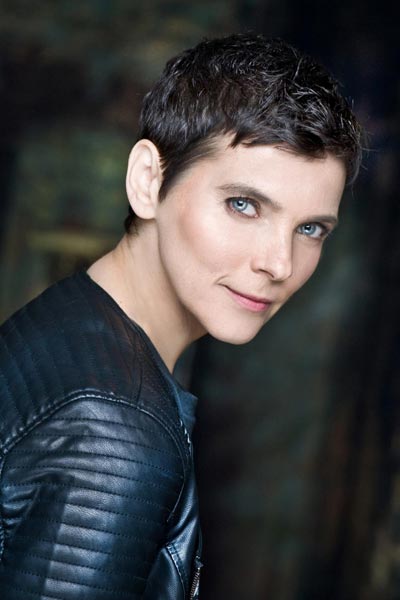
For LGBTQ2 and non-binary people, there aren’t a lot of available auditions or roles. When auditions do come around, it is both anxiety-provoking and exciting for people like me.
– Joanne Vannicola
Joanne Vannicola
I can’t say the name of the show yet, but it’s been around for a few seasons and has a massive fan base. The first audition was with a casting director and reader on Zoom. I had just had a death in my family and honestly didn’t know how I was supposed to deal with death, COVID and other life pressures. The sides were mammoth, with very difficult dialogue that felt like another language. And then I was told to do an accent on top of it. This was not going to work out well. Then I find out the part is non-binary and I just had to try. I worked through a lot of grief and turmoil to memorize this very technical script. The audition went well until they said, “now do it with the accent.” I had done everything I could within the timeframe I was given and said, “I’m really sorry, but I can’t do that right now.” Then I was told they weren’t going to submit me, and I felt defeated, like I had been beaten up. A few days later, I got a note saying if I would put myself on tape with the accent, they would send it forward.
I had to go for it. My new self-tape audition was submitted and I ended up getting a third audition via Zoom with the director and creatives in L.A. It was nerve-wracking because they were 50 minutes late, but when they finally appeared, they were lovely. I will also add that I outed myself in every audition, saying I was non-binary, Queer, and what my pronouns were. I made that part of the process, which was new for me. It is important to be a part of that forward-thinking movement. And yes, I was really excited when I got the part. You have to take risks sometimes.
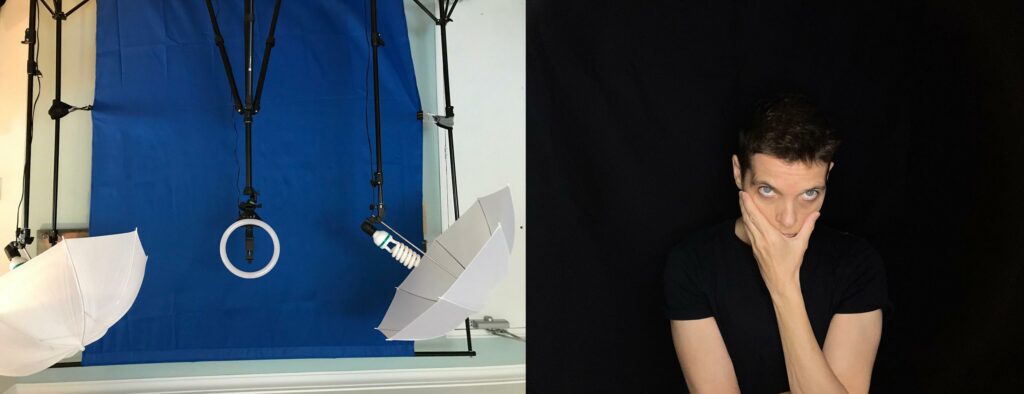
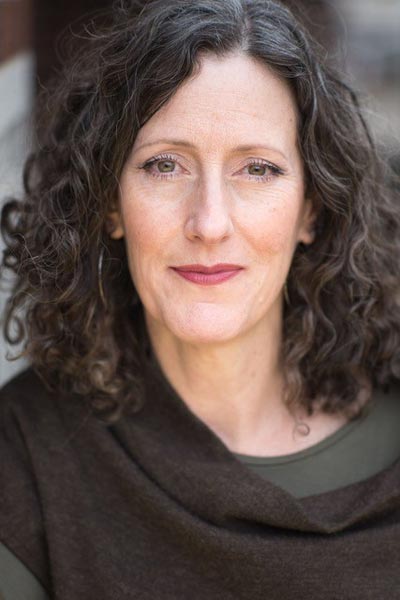
Once you realize they are not casting for what you look like or the lighting, but the essence of who you are, don’t hide your light under a bushel because that is the thing you have to offer.
– Alison Woolridge
Alison Woolridge
My mother passed away three years ago. Because of COVID, it was finally time to go out to Corner Brook and clean out her big house. In the middle of this, my casting director friend, Didi, called to tell me I got a callback for an American production filming here in St. John’s. I did the initial run of auditions. They liked me but I didn’t book. This time the audition was for a role that had the potential to become recurring. The day of the callback, I was knee-deep in my mother’s papers when I learned the house had inexplicably been sold. I was so rattled by the chaos, I poured myself a stiff gin. Let’s just say my mind was elsewhere. And now I had to concentrate on a callback! I had to scramble to dial up Zoom from a new network. Didi was in her car, out on the isthmus, trying to find strong enough bandwidth to connect to Zoom with both the U.S. director and me. Add to this, the Internet is coming and going because of a thundering lightning storm. I find myself sitting on the floor in my mother’s bedroom with my gin, crying in my dead mother’s possessions and thinking, do I even remember the lines? Jesus, Jesus, Jesus! I poured myself another gin. What do I have to lose? I do the audition. You could plainly see I was surrounded by boxes. I swear up a storm and basically say to the director, “as soon as this Zoom is over, I’m going to my dead mother’s wine cabinet and drinking everything in it.” It could have gone either way, but the director starts to laugh. And I think, oh my god, what did you just do?
The next day, Didi called to say, “you booked it” and “this is a lesson for both of us Allison, maybe we’re taking our auditions too seriously, maybe the looseness helps?” I asked the director why he cast me. He said he didn’t care about the sides or the scene. He was just looking for that energy in an actor that he wants to capture when he’s filming.
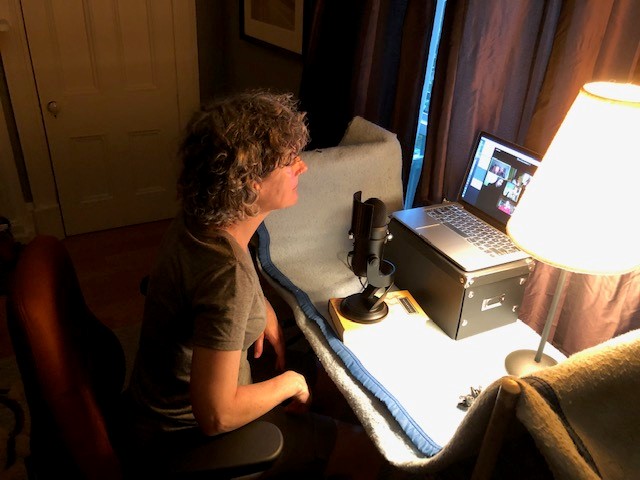
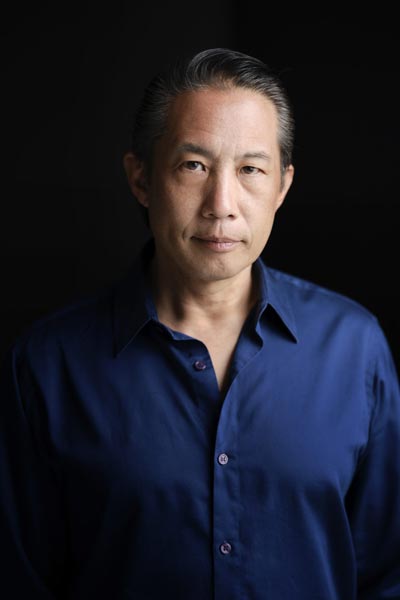
I am learning a lot and growing as an actor when working with other actors. I have discovered a lot of magical moments I never would have found if I just walked into a room and walked out.
– Russell Yuen
Russell Yuen
Normally, I would have three different versions in my pocket when I walk into the audition room. When you get direction, you have a better understanding of the style of the project and what they want. A difficulty with self-tape auditions is that now I need to combine parts of three different versions to make it work. I also do a lot more research than I did before, looking into the production, producer, showrunner and director.
I auditioned for this new kid’s show. I wasn’t sure of the style because the show hadn’t been filmed yet. So, I gave them two very different versions of the same scene. I was cast but I’m still not sure which version they want me to do.
When the pandemic hit, I was already set up for self-tapes but still had to invest in more equipment. I got a second ring light, a better microphone, and upgraded my editing software. I don’t want production quality, but I do want my self-tapes to be pleasurable to watch. I never correct an audition I have already taped. I put it together, look at it, see the mistakes… but if the acting is good, I let the mistakes go. Hopefully casting and production are doing what they should be doing. Not looking for perfection but looking for a good actor who understands the character.
The biggest challenge is putting everything together within the time limitations, especially when scenes are 12-15 pages long. If you receive it on a Wednesday, and it’s due Friday, you have to start studying, book your reader for the next day, edit it together, and send it out by Friday morning. Sometimes that is impossible.
Callbacks are hard to do on Zoom. You can’t read the room and there is the problem with audio delay. It is hard to get the timing right or find the chemistry, especially for comedy.
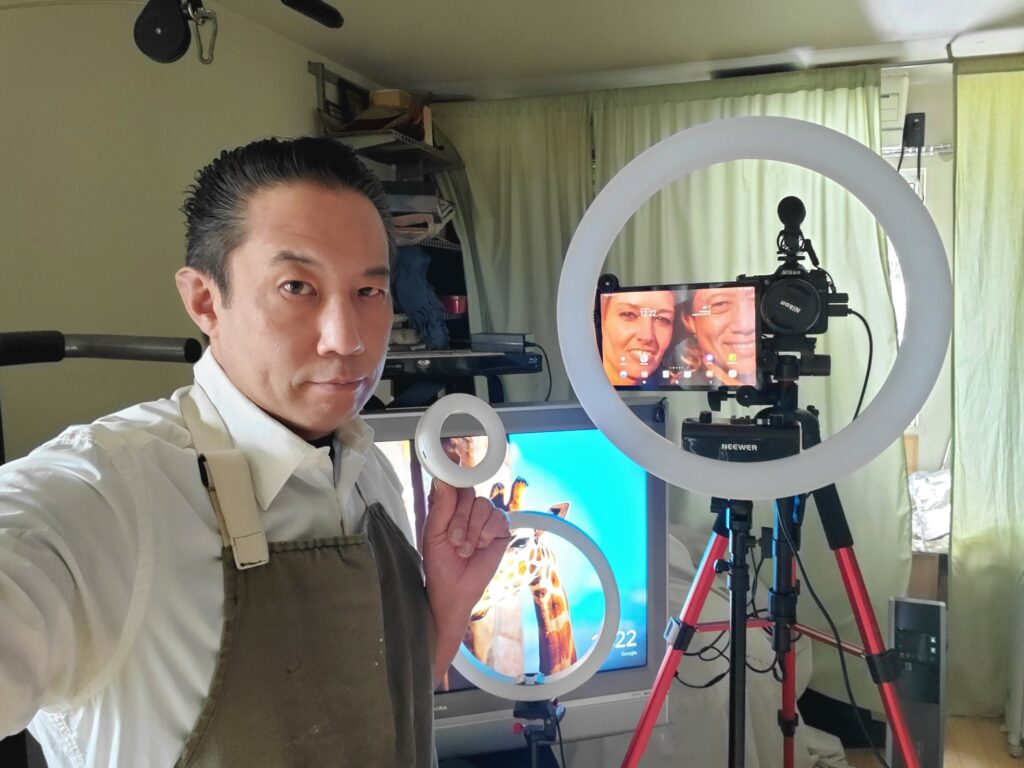
Systemic, ingrained racism is also something many actors have to deal with. I can’t tell you how many times people tell me to speak with my natural voice. I tell them I am and then I realize they want an accent that sounds Asian enough to make them happy but that doesn’t actually exist anywhere.

Theresa Tova is ACTRA National Treasurer and the Past President of ACTRA Toronto. She is the chair of the Entertainment Industry Coalition, which recently developed an improved code of ethics for talent agents. Her most important contributions to safety in the entertainment industry include proving to be an effective spokesperson about ACTRA’s zero-tolerance policy for sexual harassment in the industry and her tireless efforts to protect child performers. An award-winning actor, writer and singer, Theresa is recognized as a Dora Award Winner and Gemini- and Governor General-nominated artist.

